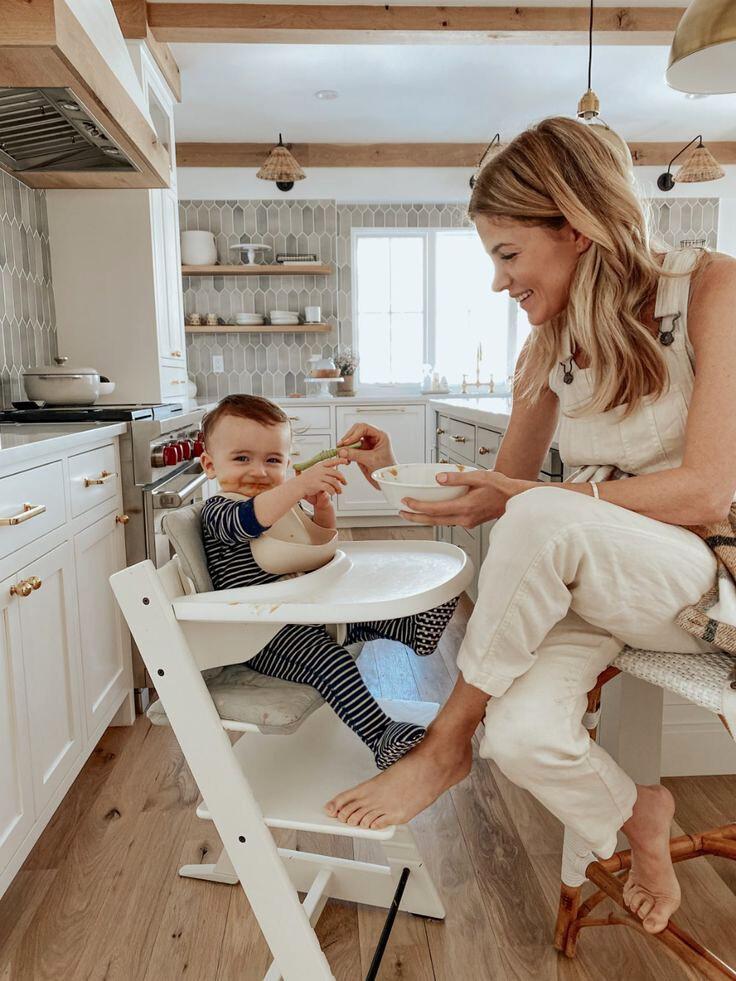Understanding Bacteria Growth and Its
Impact:
Bacteria are microscopic organisms that exist all around us, some of which can be harmful to human health.
When it comes to baby utensils, such as bottles, pacifiers, and feeding spoons, they provide a fertile ground for bacteria growth.
These utensils often come into contact with saliva, leftover food, and other external contaminants, creating an environment conducive to bacterial proliferation.
If not addressed appropriately, the presence of bacteria on baby utensils can pose a risk to your child's health.
The Importance of Maintaining Clean Utensils: Reducing Infections
Babies have delicate immune systems that are still developing, making them more susceptible to infections. When utensils are contaminated with bacteria, viruses, or other pathogens, they can transfer to your baby's mouth, leading to various infections, including gastrointestinal and respiratory illnesses.
Preventing Gastrointestinal Disturbances
Improperly cleaned utensils can introduce harmful bacteria into your baby's digestive system, causing gastrointestinal disturbances like diarrhea, vomiting, and abdominal pain. These conditions can be particularly concerning in infants as they can lead to dehydration and nutritional deficiencies.
Measures to Ensure Utensil Hygiene:
Thorough Cleaning:
1. After each use, ensure that you wash all baby utensils with warm water and mild detergent. Pay close attention to hidden areas, such as bottle nipples or pacifier crevices, where bacteria can accumulate. Use a bottle brush or a small cleaning brush to reach these spots effectively.
2. Sterilization: Regularly sterilize baby
utensils, especially in the early months when your baby's immune system is still developing. Boiling the utensils for a few minutes or using a steam sterilizer can help eliminate harmful bacteria, ensuring a hygienic feeding experience.
3. Avoid Sharing Utensils:It's crucial to refrain from sharing baby utensils with other children or adults, as this can introduce new sources of contamination. Each baby should have their own set of utensils to minimize the risk of crosscontamination.
4. Storage and Drying: Allow the cleaned utensils to air dry thoroughly before storing them. Avoid using cloth towels, as they can harbor bacteria. Opt for a clean and dry dish rack or a designated utensil drying rack to ensure proper drying and ventilation.
5. Regular Inspections: Routinely examine baby utensils for any signs of wear and tear, such as cracks or scratches, as these can harbor bacteria even after cleaning.
Replace damaged utensils promptly to maintain a safe and hygienic feeding environment.
Optional Use of UV Sterilizers: The Role of Advanced Technology
In recent years, technological advancements have introduced additional options for parents seeking enhanced hygiene measures for their baby's utensils. One such innovation is the UV sterilizer, which utilizes ultraviolet light to eliminate bacteria and viruses effectively. An example of such a product is the Wabi sanitizer, which not only sterilizes but also acts as a dryer, providing convenience and efficiency.
UV sterilizers offer an additional layer of protection by targeting hidden areas and crevices that may be challenging to reach during manual cleaning.
The ultraviolet light emitted by these devices penetrates the cell walls of bacteria and viruses, disrupting their DNA and rendering them inactive.
As a result, the risk of bacterial contamination is significantly reduced, ensuring a safer feeding experience for your baby.
Products like the Wabi UV Sterilizer provide the added benefit of drying the utensils, eliminating the need for towel drying and reducing the risk of recontamination. By utilizing a combination of UV light and hot air circulation, these devices effectively eliminate moisture, preventing the growth of bacteria during the drying process.
This feature not only saves time but also provides peace of mind, knowing that your baby's utensils are thoroughly sanitized and dried.
It's important to note that UV sterilizers are an optional tool for parents, and manual cleaning and sterilization methods remain effective if followed correctly. However, for parents who desire an extra layer of protection and convenience, UV sterilizers like the Wabi sterilizer can be a valuable addition to their baby care routine.
Important NOTE
By understanding the significance of utensil contamination and taking appropriate measures to ensure cleanliness, parents can safeguard their baby's health and well-being.
Regularly cleaning, sterilizing, and inspecting utensils will help prevent the growth and spread of harmful bacteria, reducing the risk of infections and gastrointestinal disturbances.
Remember, these simple steps play a crucial role in providing your baby with a healthy start in life.
Incorporating advanced technologies such as UV sterilizers can provide an added sense of security, complementing traditional cleaning methods and contributing to a healthier start for your little one.
 Image Credit: Anna S
Image Credit: Anna S


 Image Credit: Anna S
Image Credit: Anna S


